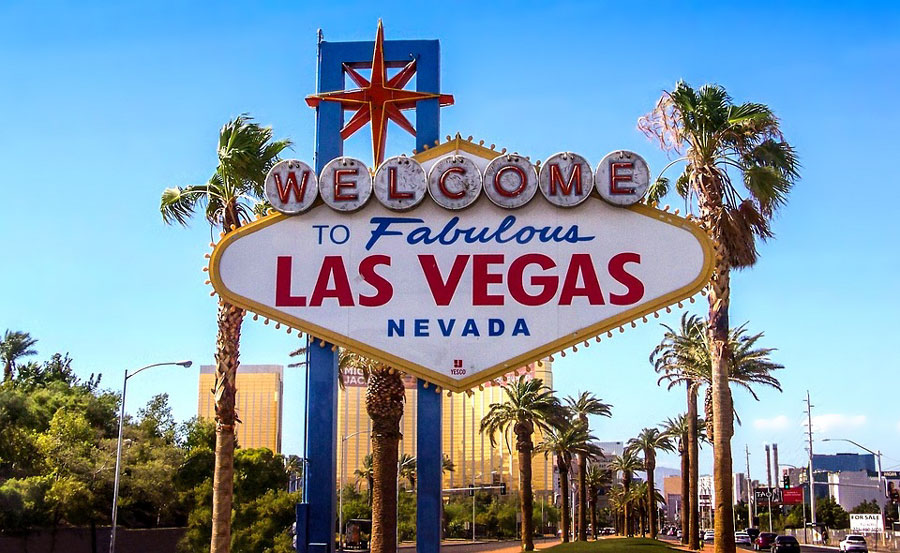
LAS VEGAS – When it comes to hot real estate markets, you might think of places such as Dallas, Texas or Seattle, Washington. However, if you haven’t been following the housing market in recent years, you might be surprised to discover that Las Vegas has risen to the top of the proverbial heap to become the hottest real estate market in the United States today. This is a big turnaround success for “sin city,” as when the country was trapped in the midst of the economic recession of the mid-2000’s, few places were as hard-hit financially as Las Vegas.
When house values climb rapidly due to demand or limited supply – or both – it is known as a “housing bubble.” As speculators get in on the market, that demand is further inflated creating a housing bubble which eventually “bursts” when demand drops. In the U.S., the housing bubble phenomenon started in 2003 and soon after housing prices hit their high point in roughly half the country by 2006. From that point, prices started to plunge, hitting an all-time low in 2012, and the burst was credited in large part for the recession from 2007 to 2009.
Investors, particularly in Las Vegas, had gobbled up large numbers of homes in the region, often for no money down. As a result, most of those homes sat vacant and unused, and construction as development jobs stagnated. At its hot point, houses in Vegas that were purchased for $150,000 were selling for $270,000, but after the burst, prices dropped by over 60 percent – about double the national rate – and very quickly people found themselves with investments worth far less then originally expected.
Many people had taken out large mortgages with unfavorable terms because they envisioned selling their houses quickly; instead, they found themselves stuck with large, un-affordable payments and no potential sales in sight, resulting in Nevada being the foreclosure champ for a number of years, with median prices of a single-family home plummeting to their lowest numbers.
Many first time buyers who purchased homes in 2003 and 2004 were now upside down in their homes in 2007 – 2010 and many had an interest only loan or adjustable rate mortgage causing them to walk away from their homes because they couldn’t sell or afford the mortgage payment when the recession hit. It was very rough times back in 2007 – 2010 for many Las Vegas homeowners.
Broker/Owner, Tony Sena, Shelter Realty, Inc.
However, in recent years, a ray of light has come upon the Las Vegas real estate scene once again. While 2015 saw Las Vegas’ real estate market still in sorry shape (it still possessed the fourth-highest foreclosure rate in the nation at that point), however, by 2016 the market started to stabilize and home prices and sales began to slowly climb, thanks to several factors, including a recovering national economy, an influx of new jobs and investors, and the growing popularity of house flipping, which saw Vegas becoming an especially popular region for the practice due to the abundance of low-cost homes when compared to elsewhere in the country.
As the Las Vegas economy and housing market continued to improve, housing prices continued to climb, with a lack of supply feeding into the growing demand; the median price of a single-family home in January 2019 was a whopping $300,000, an increase of 1.6 percent from December and 13.2 percent from January 2018.
Those numbers, while very impressive, still actually fall below 2005 levels, at least, for the time being. Home and apartment prices and sales have been steadily rising on an annual basis for several years now, spurred on in-part by a dwindling supply that local construction companies have been struggling to keep up with.
Things continue to improve with businesses – including retail giant Amazon looking to get in on the action. National sports teams have also taken notice of the activity in Southern Nevada, with the NFL’s (former) Oakland Raiders transplanting their home base and training facilities to Las Vegas. With more casinos, convention centers, entertainment complexes, and athletic arenas being constructed, developers are working overtime to meet the increased demand brought about by the influx of new arrivals.
Of course, rapid growth has once again stoked fears that another housing bubble is slowly growing in Las Vegas, For instance, ATTOM Data, a Real Estate and Property Data company place Las Vegas on a list of 12 U.S. cities which are creating hurdles for home buyers due to affordability.
However, other reports indicate that the region is showing signs of stabilizing; signs that experts say weren’t present in the early-2000’s, but after getting burnt so badly in the past, it’s understandable that many investors would have trouble buying into the recent boom.



Comments are closed.